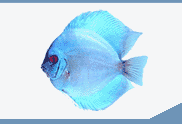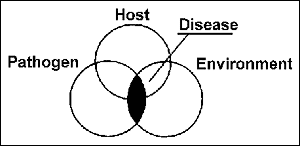

 |
||||||||||||
 |
||||||||||||
| Stress - Its Role in Fish Disease | ||||||
| Page 2 of 5 | Pages: 1 . 2 . 3 . 4 . 5 | |||||
Resistance: An animal is able to adapt to stress for a finite period of time. During this period the animal may look and act normal, but is depleting energy reserves because of the extra requirements placed upon it (See Figure 1). Exhaustion: The animal's reserves have been depleted and adaptation fails because the stress was too severe or lasted too long (see Figure 1). What Is Disease? Disease is an abnormal condition characterized by a gradual degeneration of a fish's ability to maintain normal physiologic functions. The fish is not "in balance" with itself or its environment. Disease Resistance All fish do not get sick and die each time a disease outbreak occurs. There are many factors which affect how an individual responds to a potential pathogen. The pathogen (bacteria, parasite, or virus) must be capable of causing disease. The host (fish) must be in a susceptible state, and certain environmental conditions must be present for a disease outbreak to occur ( Figure 2 ). 
Figure 2 Defense Against Disease Protective barriers against infection
more ... |
 |
|||||
| About Us :: Message Board :: Chat | |||||
| Library :: Photo Gallery :: Links & Resources :: Breeders & Sponsors :: Merchandise | |||||
| Website designed by: EthanCote.com | © 2001-2004, SimplyDiscus.com. All Rights Reserved. | ||||